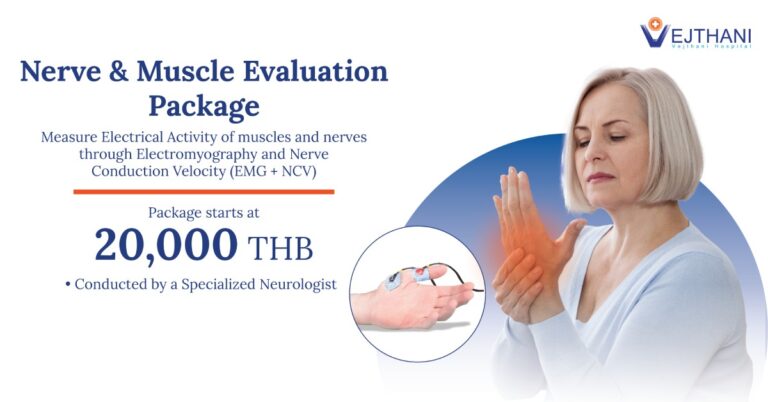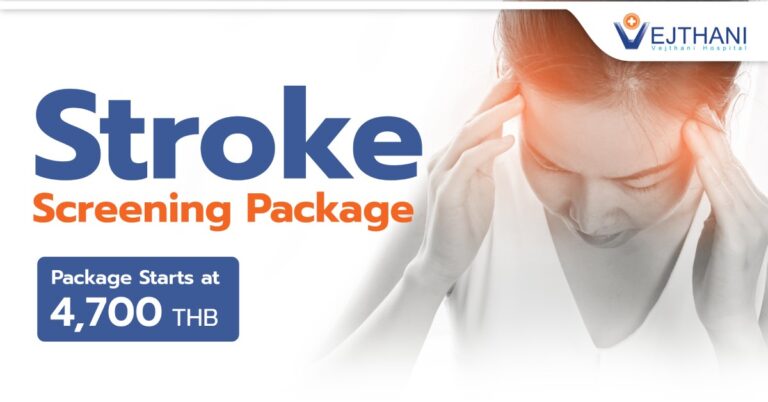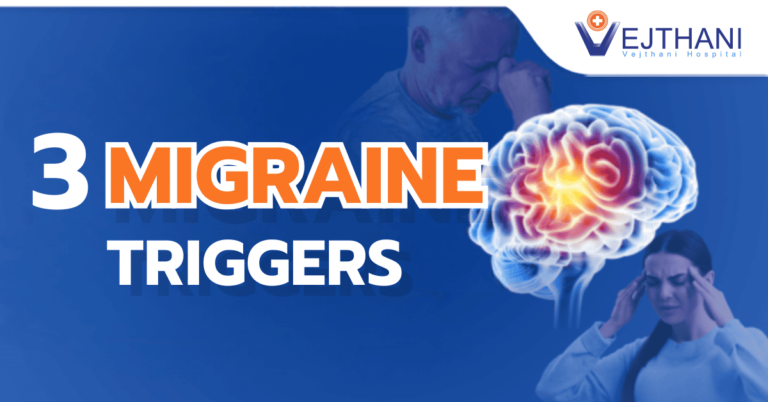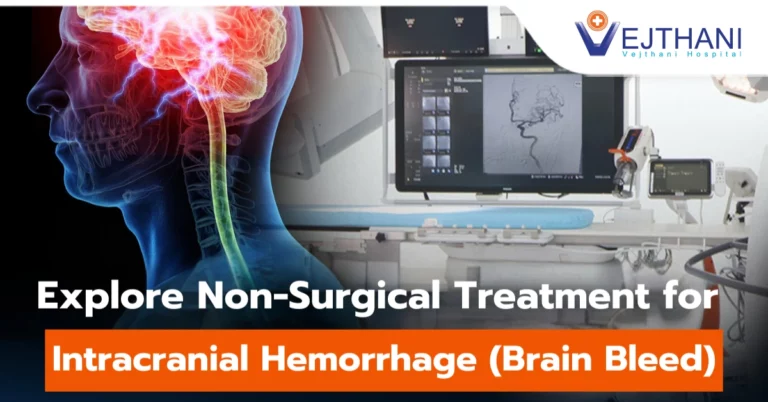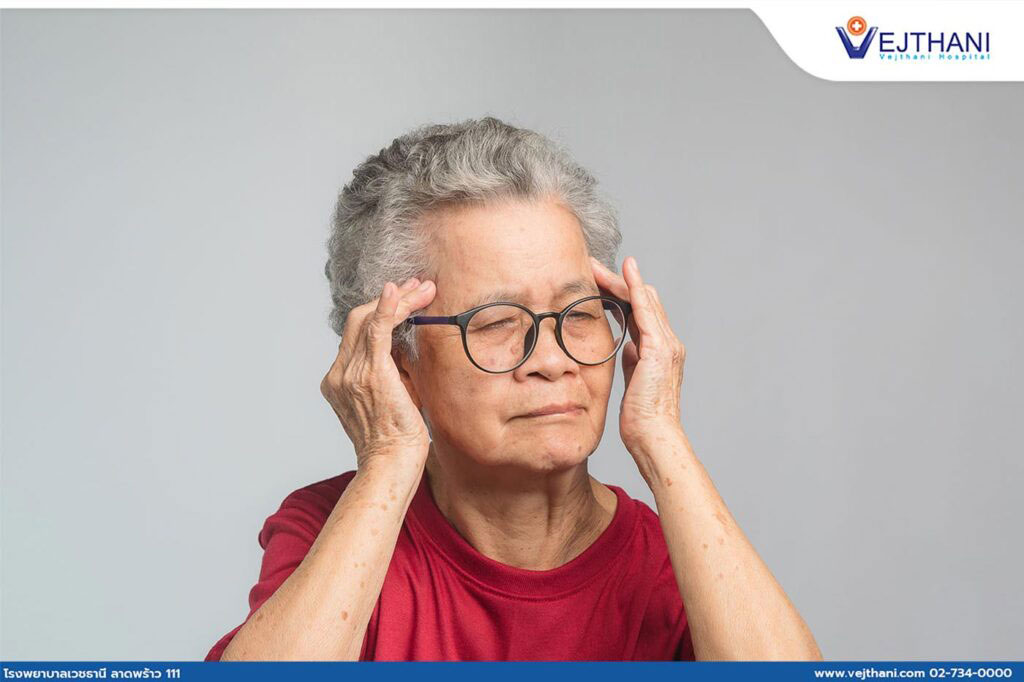

Cerebrovascular disease or stroke often affects various aspects of brain function, one of which is memory loss. Currently, MoCA is used as a screening test to detect memory loss after a stroke. The detection helps with treatment planning and prevents the risk of dementia from the early stage of a stroke.
Dr. Waratchaya Walailaksanaporn, a neurologist at Vejthani Hospital, explains that cerebrovascular disease or stroke is caused by an acute lack of blood supply to the brain. This leads to the deterioration and dysfunction of brain cells, which causes various effects on the body.
“Memory loss” is one of the most common side effects of cerebrovascular disease. Up to 50% of stroke patients will have memory loss within one year, and it has been found that 1 in 3 stroke patients will have memory loss to the extent of being diagnosed with dementia.
Early symptoms of memory loss include forgetfulness, difficulty thinking, difficulty finding the right words, trouble planning, slow decision-making, and decreased concentration. Some patients may also experience language difficulties. All of these symptoms can significantly affect daily life, especially for stroke patients who are still working.
The initial screening test for memory loss is the Montreal Cognitive Assessment (MoCA). The test takes approximately 30 minutes. Although it is used in the early stages of cerebrovascular disease, it cannot solely attribute memory problems to the stroke itself. Several hidden factors may contribute, including mineral deficiencies, being on multiple medications, and anxiety from a severe illness or other psychological conditions that can affect memory. A long-term screening test is recommended after initially overcoming the disease. If abnormalities indicate brain function problems, the doctor will advise further investigation to pinpoint the exact cause.
Medication can relieve memory loss after a stroke. The goal of the treatment is to help improve memory in stroke patients. However, patients may experience side effects from the medicine, such as dizziness and diarrhea. Memory loss can also be treated with brain training methods using Virtual Reality simulations to stimulate memory. This approach has shown that it can restore memory better than traditional brain training. It also helps reduce forgetfulness and difficulty thinking and increases concentration on work.
“Studies have revealed that in patients with cerebrovascular disease who later experience memory issues, the cause can be attributed to the recurrence of the cerebrovascular disease. Other causes could be the narrowing or blockage of small blood vessels in the brain. Therefore, risk factors that cause stroke, such as blood pressure, blood sugar and cholesterol level, should be controlled. Also, abstaining from smoking is very important to prevent repeated strokes, which may lead to memory loss,” said Dr. Waratchaya.
Apart from memory loss, stroke can also cause other complications, including hemiplegia, slurred speech, vision problems, swallowing difficulties, and emotional problems. Stroke patients should monitor their symptoms with their doctors and schedule follow-up appointments so that the doctors can assess the risks and possible complications. Early detection is the key to unlocking your full potential for quality life.
For more information, please contact
Neuroscience Center, Vejthani Hospital.
Tel. 02-734-0000 Ext. 5400
English Hotline: (+66)8-522 38888
- Readers Rating
- Rated 5 stars
5 / 5 ( Reviewers) - Spectacular
- Your Rating






















